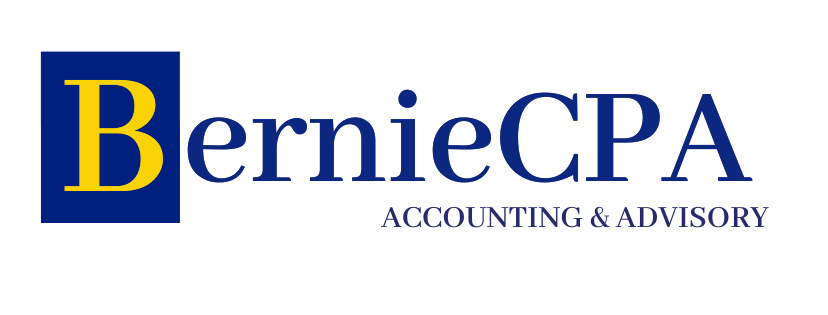Demystifying Beneficial Ownership: What Sole Member LLCs Need to Know
Beneficial ownership refers to the individuals who ultimately own or control a legal entity, such as a company or trust, and enjoy the benefits of ownership, even if the legal title is held by another person or entity. It is important to distinguish between legal ownership, which is the ownership of an asset or property in the eyes of the law, and beneficial ownership, which is the actual enjoyment of the benefits of ownership. Understanding beneficial ownership is crucial for ensuring transparency and accountability in business transactions, as it helps to prevent money laundering, tax evasion, and other illicit activities.
In the context of a sole member LLC, the beneficial owner is the individual who ultimately owns and controls the company, even if the legal title is held by the LLC itself. This means that the sole member of the LLC is considered the beneficial owner, and is responsible for disclosing their ownership and control of the company in compliance with legal requirements. Understanding beneficial ownership is essential for sole member LLCs to ensure compliance with regulations and maintain transparency in their business operations.
The Importance of Beneficial Ownership for Sole Member LLCs
Beneficial ownership is particularly important for sole member LLCs because it helps to establish transparency and accountability in the ownership and control of the company. As the sole member of the LLC, the individual is responsible for disclosing their ownership and control of the company, which helps to prevent illicit activities such as money laundering and tax evasion. By understanding and disclosing beneficial ownership, sole member LLCs can demonstrate their commitment to ethical business practices and compliance with legal requirements.
Furthermore, understanding beneficial ownership is important for sole member LLCs to protect their reputation and maintain trust with stakeholders, including customers, suppliers, and investors. By being transparent about their ownership and control of the company, sole member LLCs can build credibility and trust with their business partners, which can ultimately lead to long-term success and sustainability. Overall, the importance of beneficial ownership for sole member LLCs cannot be overstated, as it is essential for maintaining transparency, accountability, and trust in business operations.
Identifying Beneficial Owners in a Sole Member LLC
Identifying the beneficial owner of a sole member LLC is relatively straightforward, as there is only one individual who owns and controls the company. In the case of a sole member LLC, the individual who has ultimate ownership and control of the company is considered the beneficial owner. This means that the sole member of the LLC is responsible for disclosing their ownership and control of the company in compliance with legal requirements.
In some cases, it may be necessary to conduct due diligence to verify the identity of the beneficial owner, especially if there are complex ownership structures or if there are doubts about the true owner of the company. Due diligence may involve gathering information about the individual’s identity, such as their name, address, date of birth, and nationality, as well as verifying their ownership and control of the company through legal documents and corporate records. By identifying the beneficial owner of a sole member LLC, the company can ensure compliance with legal requirements and maintain transparency in its business operations.
Legal Requirements for Disclosing Beneficial Ownership
Sole member LLCs are required to disclose their beneficial ownership in compliance with legal requirements, which may vary depending on the jurisdiction in which the company operates. In many countries, including the United States, there are regulations that require companies to disclose their beneficial ownership to government authorities, such as the Internal Revenue Service (IRS) or the Financial Crimes Enforcement Network (FinCEN). These regulations are designed to prevent money laundering, tax evasion, and other illicit activities by ensuring transparency and accountability in business transactions.
The legal requirements for disclosing beneficial ownership typically involve providing information about the individual who ultimately owns and controls the company, including their name, address, date of birth, nationality, and percentage of ownership. In some cases, companies may also be required to provide supporting documentation to verify the identity of the beneficial owner, such as copies of identification documents and corporate records. By complying with these legal requirements, sole member LLCs can demonstrate their commitment to ethical business practices and maintain transparency in their business operations.
How to Maintain Privacy as a Sole Member LLC
While sole member LLCs are required to disclose their beneficial ownership in compliance with legal requirements, there are ways to maintain privacy and protect sensitive information. One option is to use a nominee or proxy to hold legal title to the company on behalf of the beneficial owner, while still allowing the beneficial owner to enjoy the benefits of ownership. This can help to protect the privacy of the beneficial owner and prevent their personal information from being publicly disclosed.
Another option is to use a trust structure to hold legal title to the company on behalf of the beneficial owner, while still allowing the beneficial owner to enjoy the benefits of ownership. By using a trust structure, sole member LLCs can maintain privacy and protect sensitive information while still complying with legal requirements for disclosing beneficial ownership. Overall, there are various strategies that sole member LLCs can use to maintain privacy while still complying with legal requirements for disclosing beneficial ownership.
Potential Risks of Non-compliance with Beneficial Ownership Regulations
Non-compliance with beneficial ownership regulations can have serious consequences for sole member LLCs, including fines, penalties, and reputational damage. In many countries, including the United States, there are strict regulations that require companies to disclose their beneficial ownership to government authorities in order to prevent money laundering, tax evasion, and other illicit activities. Failure to comply with these regulations can result in significant financial and legal consequences for sole member LLCs.
Furthermore, non-compliance with beneficial ownership regulations can damage the reputation of a sole member LLC and erode trust with stakeholders, including customers, suppliers, and investors. By failing to disclose their beneficial ownership in compliance with legal requirements, sole member LLCs can create suspicion and doubt about their business practices, which can ultimately lead to loss of business opportunities and damage to their brand. Overall, non-compliance with beneficial ownership regulations poses significant risks for sole member LLCs and can have far-reaching consequences for their business operations.
Steps for Sole Member LLCs to Ensure Compliance with Beneficial Ownership Laws
To ensure compliance with beneficial ownership laws, sole member LLCs should take proactive steps to identify and disclose their beneficial ownership in accordance with legal requirements. This may involve conducting due diligence to verify the identity of the beneficial owner and gathering information about their ownership and control of the company. Sole member LLCs should also keep accurate records of their beneficial ownership information and be prepared to provide this information to government authorities upon request.
Additionally, sole member LLCs should stay informed about changes in beneficial ownership regulations and seek professional advice if they have any doubts or concerns about their compliance obligations. By staying proactive and informed about beneficial ownership laws, sole member LLCs can demonstrate their commitment to ethical business practices and maintain transparency in their business operations. Overall, taking proactive steps to ensure compliance with beneficial ownership laws is essential for sole member LLCs to protect their reputation and maintain trust with stakeholders.


